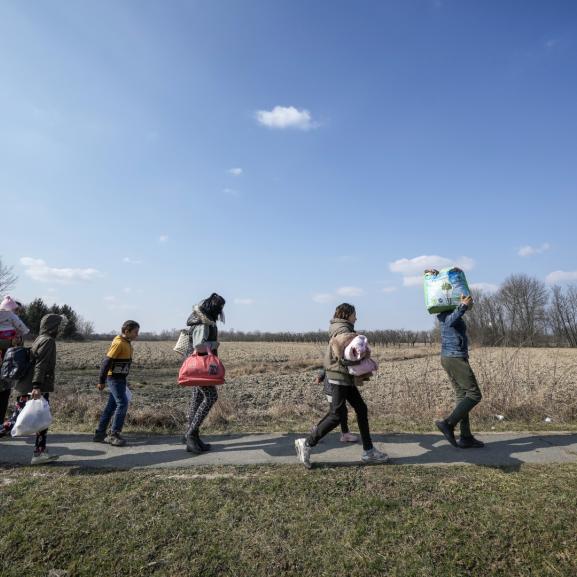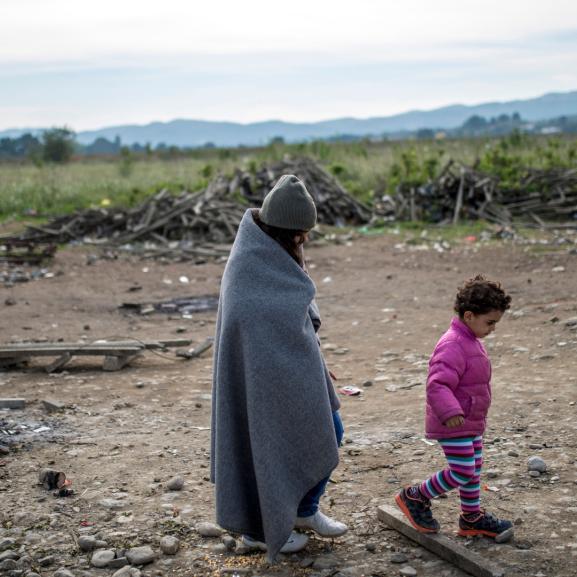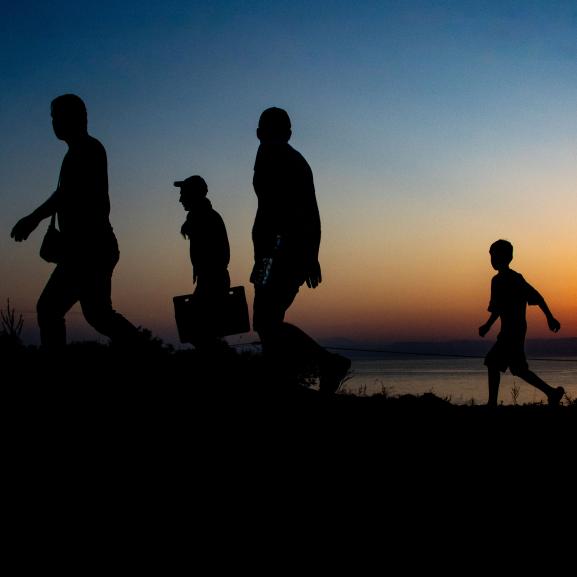Government Accused of Abandoning Torture Survivors' Detention Safeguard
The Government appears to be retreating from its undertaking that asylum seekers who have survived torture will only be detained in "exceptional circumstances" by listing four categories of applicant who may be held.
The Medical Foundation fears that the list, revealed in a House of Lords debate about the new asylum bill, will be seen by immigration officers as official sanction to detain many people who would hitherto have remained at liberty.
The MF is worried at the effect of detention on the mental health of people who have been imprisoned and tortured in their countries of origin, with retraumatisation a real possibility, and it is concerned about the level of care available in detention for such people.
Home Office spokesman Lord Bassam told the House of Lords in the debate on the Border and Immigration Bill that the four categories of asylum seekers now facing detention were:
- those with no lawful basis to remain in the UK whose removal is to be enforced.
- convicted criminals, from whom the public needs protection
- people guilty of persistently absconding
- those facing return to a third country for consideration of their asylum claim.
The detention of torture survivors whose asylum claims have failed is, according to MF refugee policy officer David Rhys Jones, "a moral outrage".
Pointing out that some cases fail even though it has been accepted that the applicant has been tortured, he said: "I'm at a loss to understand how it is, on the one hand, accepted that it is invariably inappropriate to detain a torture survivor at the beginning of the asylum procedure, but perfectly acceptable for a torture survivor to be detained at the end. If torture has been accepted on the basis of "independent evidence", then how can continued and indefinite detention be acceptable?"
He added that Dr Christina Pourgourides a psychiatrist formerly with the MF and author of A Second Exile: the Mental Health Implications of Detention of Asylum seekers (1996), had investigated the effect of detention on mental health.
Her report, based on in-depth interviews, concluded that: "Detention creates trauma regardless of previous traumatic experiences, producing anxiety, depression, isolation and so on, all components of traumatic experience. It was felt that such trauma may be worse than what may have been previously endured."
In other reports she and others have concluded that, "For survivors of torture the experience of detention may provoke feelings of fear and powerlessness and restimulate their distress."
A report by Anne Owers, HM Inspector of Prisons, into Harmondsworth immigration detention centre last year, however, drew attention to the lack of training for healthcare staff in the management of patients who had been tortured, "although this has been a recommendation in two previous inspections." She also criticised healthcare arrangements at another centre, Yarl's Wood.
In the case of convicted criminals, the MF is aware of a number of cases where torture survivors have been detained simply because they have broken immigration laws. As it has become increasingly difficult to enter Britain in order to claim asylum without falling foul of the law, the MF maintains that immigration offences should not be used as grounds for detention.
Torture survivors, the MF adds, have already shown they are unlikely to be "persistent absconders" for fear of providing the authorities with an excuse to lock them up.
Asylum seekers who face return to a third country for consideration of their asylum claim are generally people who are found to have passed through another EU country before making their claim in Britain. Under the terms of the Dublin Convention, they must apply for asylum in the first EU country they enter, and can be returned there to have their claim heard.
The MF believes that the rationale for detaining such people is that removal to a third country can be made swiftly because there is no right of appeal, so "administrative detention" is regarded as a reasonable approach.
However, removal is no longer necessarily swift given a recent High Court ruling that return under the Dublin Convention may affect an applicant's rights under the European Convention on Human Rights, particularly in regard to protecting people from potential torture.
The MF believes that all torture survivors facing return to a third country should be released for assessment by its doctors and lawyers. If evidence of past torture is found, it would indicate that there may be grounds to have the case heard in the UK.
"Detaining torture survivors is both cruel and unnecessary," said David Rhys Jones. "But it is increasingly clear that this Government is prepared to sacrifice humanitarian principle in its relentless effort to drive down asylum figures."






